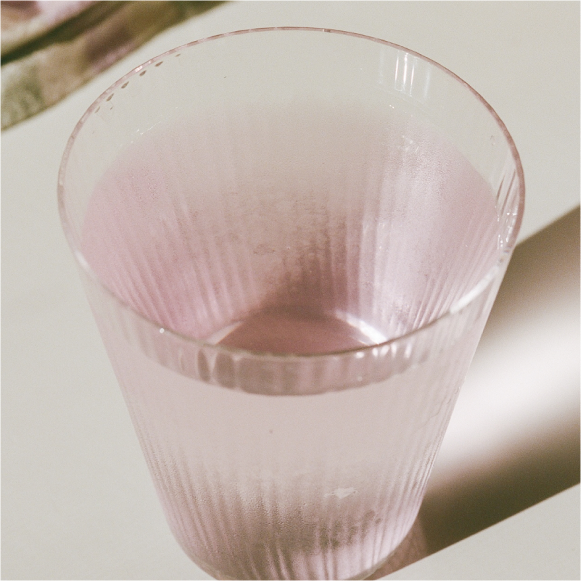Magnesium, a vital mineral and electrolyte, is essential for more than 300 enzymatic processes in the human body. Despite its abundance in nature, over 50% of the population has a Magnesium deficiency. Because Magnesium is essential for heart function, energy production, bone strength, nerve transmission, and muscle function, maintaining adequate levels is crucial for overall health.
Many turn to supplements to meet their needs and among the various types of Magnesium, Magnesium Citrate and Magnesium Glycinate stand out due to their powerful benefits and the body’s ability to easily absorb them. With each serving different needs, it can be hard to know which one is right for you.
In this guide, we explore the key differences between Magnesium Glycinate and Magnesium Citrate to help you determine the best Magnesium supplement for your goals. Whether you need support for your digestive health or a boost in relaxation and sleep quality, understanding these forms and learning how to raise your Magnesium levels are the first steps toward optimizing your health.
A Quick Comparison: Magnesium Citrate vs. Magnesium Glycinate
When deciding between Magnesium Glycinate and Magnesium Citrate, the primary consideration is the differences in their unique health benefits. Magnesium Glycinate is often preferred for its calming effect, making it ideal for improving sleep and relaxation. On the other hand, Magnesium Citrate is particularly effective for digestive health and is commonly used as a laxative due to its ability to attract water into the intestines, making it a popular choice for relieving constipation.
Choose Magnesium Glycinate if you’re having trouble sleeping, need enhanced calm and muscle relaxation, or want to support your mood. Choose Magnesium Citrate if you’re looking to boost your overall levels of Magnesium in your body, or if you’re looking for digestive regularity or cardiovascular support.
Below, we'll explore each of these types of Magnesium in more detail, allowing you to make an informed decision about supplementation.
What is Magnesium Citrate?
Magnesium Citrate is a Magnesium salt combined with citric acid, forming a compound that is highly bioavailable, meaning it is readily absorbed by the body. This dietary supplement is composed of approximately 16% elemental Magnesium, which refers to the actual amount of Magnesium available for absorption. It is commonly used to enhance Magnesium levels in individuals who may not consume mineral-rich foods or obtain sufficient amounts from their diet. This is quite common due to the soil depletion of our modern food crops and demineralized water in American diets.
Due to its ability to attract water into the intestines, Magnesium Citrate also functions as an effective laxative, helping to alleviate constipation and promoting digestive regularity. This makes it a popular choice for those seeking both to replenish Magnesium deficiencies and reverse digestive issues.
Benefits of Magnesium Citrate
Magnesium Citrate offers a range of health benefits. Here are the key advantages of incorporating this supplement into your health regimen:
- High Bioavailability: Magnesium Citrate is more bioavailable than many other forms of Magnesium, meaning that your body is better able to absorb it and put it to work.
- Cost-Effectiveness: It also tends to be more affordable on its own than many other forms of supplemental Magnesium, so if you’re using it daily, you could save costs over time.
- Comprehensive Health Benefits: By increasing your Magnesium levels, Magnesium Citrate can support your overall body health. Magnesium Citrate benefits range from bone health to sleep support and is also commonly used to support digestive health and cardiovascular function.
- Specialized Digestive Health Benefits: It promotes regularity by drawing water into your intestines to soften stool. It’s sometimes used as a laxative depending on the type of Magnesium Citrate that you’re taking. And because so much is linked to the gut (through your gut-skin axis or your gut-brain axis, for example) if you’re experiencing breakouts or low mood as a result of gut dysbiosis, Magnesium Citrate can help clear things out. It’s gentle, non-stimulant, and non-habit forming.
What is Magnesium Glycinate?
Magnesium Glycinate is a compound formed by mixing Magnesium and Glycine, an amino acid that serves as an inhibitory neurotransmitter, which has calming effects on the brain and body. This combination boasts about 14.1% elemental magnesium by mass. Magnesium Glycinate is particularly valued for its ability to improve sleep quality and enhance overall relaxation. Notably, this form of Magnesium is highly bioavailable, meaning it is readily absorbed by the body, making it one of the more effective forms of magnesium for supplementation.
Benefits of Magnesium Glycinate
Magnesium Glycinate is popular not only for its high absorption but also for its broad range of health benefits. This specific form of Magnesium, coupled with the amino acid glycine, offers unique advantages that extend beyond basic nutritional supplementation. Its impact on sleep, stress, muscle relaxation, and overall well-being makes it a favored choice for those looking to address specific health concerns or improve their quality of life.
Optimal for Nighttime Use
Magnesium Glycinate is typically considered the best form of Magnesium before bed for supporting sleep, thanks to its ability to lower body temperature, relax muscles, and calm the central nervous system.
Stress Relief & Mood Enhancement
Magnesium Glycinate can also help support your efforts to destress and keep you out of a low-energy loop. This is because stress tends to deplete Magnesium at the cellular level, which can increase cortisol levels and exacerbate stress responses. By supplementing with Magnesium Glycinate, you can help replenish low Magnesium levels, which in turn helps to stabilize mood and reduce stress. This form of Magnesium aids in maintaining high concentrations of magnesium in cells, facilitating better regulation of the stress response and promoting feelings of calm and relaxation.
Magnesium Glycinate may help you unstress and achieve calm, and evidence supports taking Magnesium Glycinate to lift your mood.
Muscle Relaxation
In addition to its benefits for sleep and stress, Magnesium Glycinate is also effective in muscle relaxation. Also, its gentle effect on the stomach also makes it suitable for those who may experience digestive issues with other forms of magnesium.
Differences Between Magnesium Citrate & Glycinate
|
Feature |
Magnesium Glycinate |
Magnesium Citrate |
|
Bioavailability |
High |
High |
|
Primary Use |
Sleep support, stress relief, muscle relaxation |
Digestive health, regularity, overall health |
|
Side Effects |
Rare, may include headaches or lethargy when overdosed |
May cause loose stools or dehydration if overdosed |
|
Cost |
Generally higher priced |
More affordable |
Compared to many forms, both these supplements are typically considered to have a high Magnesium bioavailability, meaning it’s easier for your body to absorb and use the mineral. But because they’re different ingredients, they can be used with different intentions.
- Magnesium Citrate is commonly used as a supplement to support digestive health and regularity. It’s also commonly used to support overall Magnesium levels in the body.
- Magnesium Glycinate, on the other hand, is the more common choice for sleep supplements or to help you unwind. It’s also the one that’s more commonly used to support mood.
Is it Better to Take Magnesium Citrate or Glycinate?
Which supplemental Magnesium you should incorporate into your routine will ultimately come down to your initial reason for taking a Magnesium supplement. If you believe your body is deficient in Magnesium and you’re looking to boost your overall levels of this essential mineral, Magnesium Citrate is the most common choice, and it’s bioavailable.
Magnesium Citrate is also the better option If you’re looking to improve your digestive health. Just note that too much of this Magnesium supplementation can have a laxative effect and could cause you to have loose stools, so be sure to follow recommended dosages if you don’t want Magnesium to make you poop too often.
Unbalanced cells have low Magnesium levels. This leads to a weakened stress response and continued Magnesium loss. If you’re taking a Magnesium supplement to unwind, improve mood, or specifically at nighttime to help you sleep, opt for Magnesium Glycinate.
Both dietary supplements are generally considered safe. Once you’ve reached adequate levels of Magnesium, your body will pee out the excess.
FAQs About Magnesium Citrate vs. Glycinate
Can I take Magnesium Glycinate and Citrate together?
Yes, taking both dietary supplements together is generally safe. It can be beneficial if you need both of their benefits—support for sleep and relaxation from Magnesium Glycinate and improved digestive health from Magnesium Citrate. However, consult with a healthcare provider to tailor the dosage appropriately.
Which form of Magnesium is better for sleep?
Magnesium Glycinate is better suited for improving sleep quality due to its calming effects on the nervous system and its ability to help relax muscles.
Is it okay to take Magnesium Glycinate every day?
Yes, it’s generally safe to take Magnesium Glycinate daily as part of a Magnesium supplementation routine, especially if you're managing low Magnesium levels or Magnesium deficiency. Magnesium Glycinate is well-tolerated and has a high rate of Magnesium absorption, making it a preferred option for daily Magnesium intake. However, it’s essential to consult a healthcare provider to determine the right dose based on your needs, as excessive intake from dietary supplements can lead to side effects.
Is Magnesium Glycinate or Citrate better for leg cramps?
Both Magnesium Glycinate and Magnesium Citrate can help with leg cramps, though their effects may vary. Magnesium Glycinate is often favored due to its superior Magnesium absorption and lower likelihood of causing digestive discomfort. For individuals with a Magnesium deficiency, Glycinate might be the better choice for daily Magnesium intake. However, Magnesium Citrate can also be effective and may work better for those who benefit from its mild laxative effect. As always, consult your healthcare provider to find the best dietary supplement option for your specific needs.
The Best of Both Worlds: A Magnesium Blend
To maximize your benefits and get adequate magnesium intake, you could also take a Magnesium blend. Magnesi-Om® has 3 bioavailable forms of Magnesium: a chelated Magnesium blend of Gluconate, Acetyl Taurinate, and Citrate for relaxation, sleep brain health, and regularity.* It also contains L-Theanine, a nootropic amino acid that promotes alpha-wave activity and is shown to support brain function and healthy cognitive aging.*
- Citrate 204mg, supports healthy morning movements*
- Gluconate 77mg, supports muscle relaxation*
- Acetyl Taurinate 28mg, supports cognitive function and can help alleviate symptoms of PMS*
This chelated Magnesium blend was specifically chosen due to its high Magnesium bioavailability and easy absorption into the gut with minimal discomfort.* When comparing chelated vs. non-chelated Magnesium, chelated just means bonded to an organic or amino acid for increased absorption so not as much stomach acid is needed for digestion.
The L-Theanine in this Magnesium powder supplement also helps provide cognitive support for feelings of alert relaxation and mental clarity without over-stimulation.*
Because Magnesium levels fluctuate during your cycle and drop during the luteal phase (when PMS kicks in), taking Magnesi-Om® can also help soothe PMS symptoms like bloating, cramping, tenderness, and moodiness. That’s why so many women like to take Magnesium for PMS symptoms.
So, how long does it take for Magnesium to work? Some of these effects are immediate, while others are more long-term. You should feel the benefits of taking magnesium for relaxation within a few hours after taking your natural magnesium powder supplement. Taking Magnesium for brain health is a longer game, and the sooner you start, the better. Regularity, if lacking, usually begins in a day or two of making it a habit.

Tips for Taking Magnesium Supplements
Start with one teaspoon at night or whenever you need to chill and increase if needed. If you like to start your day off regular, taking Magnesi-Om® in the evening can help support a bowel movement in the morning.*
You can also try microdosing mag. Smaller doses actually lead to higher Magnesium absorption, so to maximize, take 1/4 tsp of Magnesi-Om® in water, 4 times throughout the day.
It’s important to note that high doses of Zinc and/or Calcium can interfere with your absorption of Magnesium, so make sure if you’re also taking those supplements, allow some time before taking your Magnesium. Magnesium also assists in the activation of Vitamin D, which helps regulate your Calcium levels, so pair Magnesi-Om® with Vitamin D supplements like SuperHair®, SuperBeauty® or SuperPower® for a synergistic effect.
Takeaways
Magnesium is responsible for hundreds of functions in the body, from energy production ro nerve transmission and heart health. We need it to regulate heart rate, high blood pressure and blood sugar levels. It facilitates bone formation and muscle contraction, which is why if you’re deficient in Magnesium you might experience muscle cramps and soreness. Magnesium deficiency has also been associated with low mood and insomnia.
Every cell in your body needs Magnesium to function, and over 50% of us are deficient in this essential macromineral. With so many different forms of Magnesium supplements available, it can be hard to know which one to take. Magnesium Citrate and Magnesium Glycinate are two of the most common forms you’ll find, thanks to their bioavailability and other benefits.
If you’re looking to maximize your Magnesium benefits, look for a blend of chelated Magnesium containing Magnesium Citrate, Magnesium Gluconate, and Magnesium Acetyl Taurinate. Magnesi-Om® enhances feelings of calm, improves mood, and reduces muscle aches.* It also supports healthy cognitive aging and brain function, as well as regular bowel movements.*
While we would ideally be getting enough Magnesium through our diet, modern agriculture and the proliferation of processed foods and beverages have made it much harder for us to meet our mineral needs through whole foods alone. It’s become increasingly necessary to find a Magnesium supplement, and a responsibly sourced one at that. Magnesi-Om® is 100% traceable, 3rd party tested, and bioavailable.
Sources
- Abbasi B, Kimiagar M, Sadeghniiat K, Shirazi MM, Hedayati M, Rashidkhani B. The effect of magnesium supplementation on primary insomnia in elderly: A double-blind placebo-controlled clinical trial. https://pubmed.ncbi.nlm.nih.gov/23853635/
- Ates, Mehmet et al. "Dose-Dependent Absorption Profile of Different Magnesium Compounds." https://pubmed.ncbi.nlm.nih.gov/30761462/
- Blancquaert, Laura et al. "Predicting and Testing Bioavailability of Magnesium Supplements." https://www.ncbi.nlm.nih.gov/labs/pmc/articles/PMC6683096/
- Boonstra E, de Kleijn R, Colzato LS, Alkemade A, Forstmann BU, Nieuwenhuis S. Neurotransmitters as food supplements: the effects of GABA on brain and behavior. https://www.ncbi.nlm.nih.gov/pmc/articles/PMC4594160/
- Boyle NB, Lawton C, Dye L. The Effects of Magnesium Supplementation on Subjective Anxiety and Stress-A Systematic Review. https://www.ncbi.nlm.nih.gov/pmc/articles/PMC5452159/
- National Institutes of Health: Magnesium https://ods.od.nih.gov/factsheets/Magnesium-HealthProfessional/
- Guerrera, Mary P., MD et al. "Therapeutic Uses of Magnesium." American Family Physician, July 2019. https://www.aafp.org/afp/2009/0715/p157.html
- Held K, Antonijevic IA, Künzel H, Uhr M, Wetter TC, Golly IC, Steiger A, Murck H. Oral Mg(2+) supplementation reverses age-related neuroendocrine and sleep EEG changes in humans. https://pubmed.ncbi.nlm.nih.gov/12163983/
- National Library of Medicine, Magnesium: Fact Sheet For Health Professionals. https://ods.od.nih.gov/factsheets/Magnesium-HealthProfessional/
- Schwalfenberg GK, Genuis SJ. The Importance of Magnesium in Clinical Healthcare. Scientifica (Cairo). https://www.ncbi.nlm.nih.gov/pmc/articles/PMC5637834/
- Uysal, Nazan et al. "Timeline (Bioavailability) of Magnesium Compounds in Hours: Which Magnesium Compound Works Best?." Biol Trace Elem Res., January 2019. https://pubmed.ncbi.nlm.nih.gov/29679349/
- Walker AF, Marakis G, Christie S, Byng M. Mg citrate found more bioavailable than other Mg preparations in a randomised, double-blind study. https://pubmed.ncbi.nlm.nih.gov/14596323/
- Werner T, Kolisek M, Vormann J, Pilchova I, Grendar M, Struharnanska E, Cibulka M. Assessment of bioavailability of Mg from Mg citrate and Mg oxide by measuring urinary excretion in Mg-saturated subjects. Magnes Res. https://pubmed.ncbi.nlm.nih.gov/32162607/
- Wienecke E, Nolden C. Langzeit-HRV-Analyse zeigt Stressreduktion durch Magnesiumzufuhr [Long-term HRV analysis shows stress reduction by magnesium intake]. https://pubmed.ncbi.nlm.nih.gov/27933574/
- Yablon, Lisa A. et al. "Magnesium in Headache." Magnesium in the Central Nervous System, 2011. https://www.ncbi.nlm.nih.gov/books/NBK507271/
- Zisapel N. New perspectives on the role of melatonin in human sleep, circadian rhythms and their regulation. https://www.ncbi.nlm.nih.gov/pmc/articles/PMC6057895/

.png?v=1690462764936)
.png?v=1690462789108)













